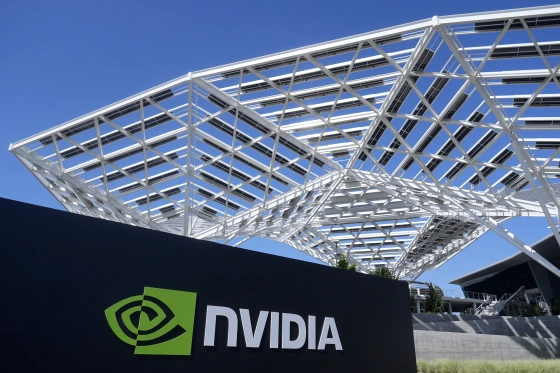Two of China’s most prominent designers of AI chips are targeting initial public offerings in Shanghai as soon as this year, taking advantage of growing appetite for domestic players seeking to challenge Nvidia Corp.
Shanghai Enflame Technology Co. aims to raise as much as 2 billion yuan ($280 million) in an IPO on Shanghai’s STAR board, choosing a venue friendly to loss-making but fast-growth startups, the people said, asking to remain anonymous discussing private plans. Rival Shanghai Biren Intelligent Technology Co. plans to file for its own IPO on the same bourse, people familiar with the matter said. Both now aim to formally file documents this year, eyeing a 2024 or early 2025 debut.
The pair of Shanghai-based chipmakers will join peer Cambricon Technologies Corp. on their home city’s bourse, which is trying to mold the STAR exchange into the country’s premier tech listings destination. Biren and Enflame, which is backed by Tencent Holdings Ltd., expect to draw investor interest because of a scarcity of listed chipmakers, despite that industry’s importance to Beijing’s geopolitical goals.
China is accelerating a campaign to develop a world-class semiconductor industry, an effort that the US is trying to curtail with sanctions and blacklists of companies such as Huawei Technologies Co. That conflict in recent years has expanded into the field of AI: Biren is one of several Chinese semiconductor firms on US blacklists that restrict their access to American technology.
Biren and Enflame have kicked off their IPO process by going into the usual “education period” for would-be debutantes, according to Chinese regulatory notices. While it’s targeting the relatively niche STAR board, Biren’s management hasn’t yet ruled out Hong Kong as a destination should the Shanghai process bog down, the people said.
Representatives for Enflame and Biren didn’t respond to emails and calls to their main lines seeking comment.
Like Nvidia, the pair make chips that developers use to train and support AI services, though they’re generally considered inferior in power and performance. Still, Beijing is encouraging Chinese companies to develop, support and adopt local alternatives, fearful that Washington will ramp up efforts to choke off the flow of Western technology needed to power everything from AI to the military. Other notable AI chip designers include Moore Threads Intelligent Beijing Co. and T-Head, backed by Alibaba Group Holding Ltd.



